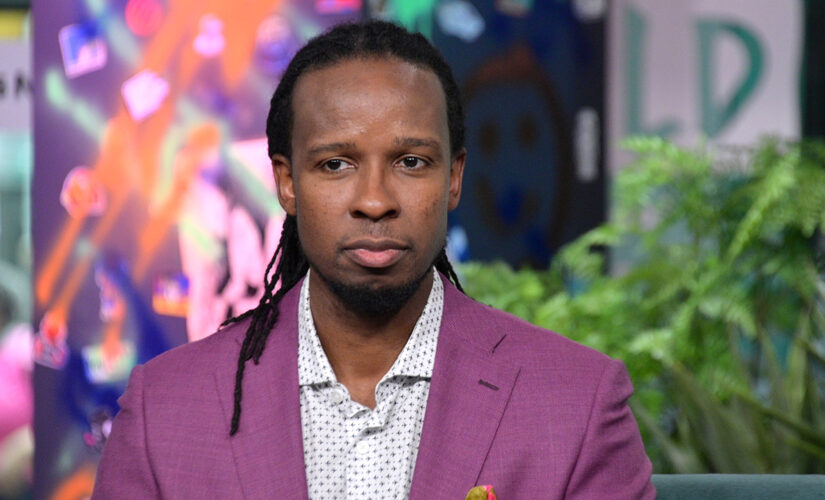NEWYou can now listen to Fox News articles!
Boston University professor and Critical Race Theory advocate Ibram X. Kendi touted the theory that “police inherently are harmful” during a panel over the weekend about abolishing policing in the U.S.
Kendi, director and founder of BU’s Center for Antiracist Research, mediated the panel featuring Elizabeth Hinton, an associate professor of history at Yale University, and “Becoming Abolitionists” author Derecka Purnell during BU’s National Antiracist Book Festival on Saturday.
“I think one of the overarching points that you just demonstrated in so many different ways is: The theory that police can reduce harm or create safety is fundamentally flawed, because the police inherently are harmful,” Kendi said to Purnell during the discussion, referring to her book.
Ibram X. Kendi touted the theory that “police inherently are harmful.”
(Michael Loccisano/Getty Images)
“But it’s so ingrained in us that that police is protective,” he continued. “And you demonstrated that even the term police violence, we now don’t even have to use the term violence because the police are inherently, sort of, violent. Do you think that’s the major hang up, that people have to imagine a world in which we’re able to abolish the police and create different types of ways to reduce harm, that people still can’t get around the fact that the police are harmful?”
Purnell said people’s fears surrounding the potential abolishment of law enforcement is ill-founded because of the harms created by law enforcement itself.
“When I hear people talk about the fear of, ‘Well, if we abolish the police, or if we defund the police, who’s going to protect all of the people from rapists?” Purnell argued. “When police regularly sexually assault people every single day. Every single day. And we take that just as a part of being in the job.”
“Police do provide a lot of protection,” she said. “They protect the borders, they protect private property, they protect capitalism, they protect people who have power. Every white supremacist march I’ve counter-protested, the police were there facing us, not the white supremacists. And so I know exactly what police protect.”
“Let’s ask, what do police do?” she continued. “Are they the best that we can do to prevent harm and to respond to harm? And I would say it is a resounding ‘no.’ They are not the best that we can do. And we can look to brown people, to refugees, to black people, to working class and exploited people all over the world to give us an answer as well.”
Demonstrators hold a sign reading “Defund the police” during a protest over the death of a Black man, Daniel Prude, after police put a spit hood over his head during an arrest on March 23, in Rochester, New York, U.S. September 6, 2020.
(REUTERS/Brendan McDermid)
Hinton argued that policing in the U.S. “clearly hasn’t worked” and that a “preventative approach” is necessary.
“In communities of color, in low income communities, the purpose and function of police is surveillance and social control and identifying people who need to be removed,” she said. “The purpose of and function of policing middle class communities is to protect property. That’s another throughline that stems from slavery.”
“We need to try something totally new,” she continued. “And I think we need to think about a robust definition of public safety and security that involves people having adequate access to health care, every single person in this country having access to nutritious food. To me, that’s safety. Providing people educational opportunities – that leads to safety and a vibrant democracy.”
Black Lives Matter sign (iStock)
(iStock)
CLICK HERE TO GET THE FOX NEWS APP
Purnell said it’s their jobs as advocates to shine a light on “how police provide more protection to systems of oppression than they do to systems of justice.”
“What’s exciting, I think, about abolition is that there are lots of different policy changes that we can have to increase agency for people,” she said. “So that ranges from universal basic income to universal childcare to student debt cancellation. There’s so many tangible, concrete ways that we can improve the lives of lots of people.”




